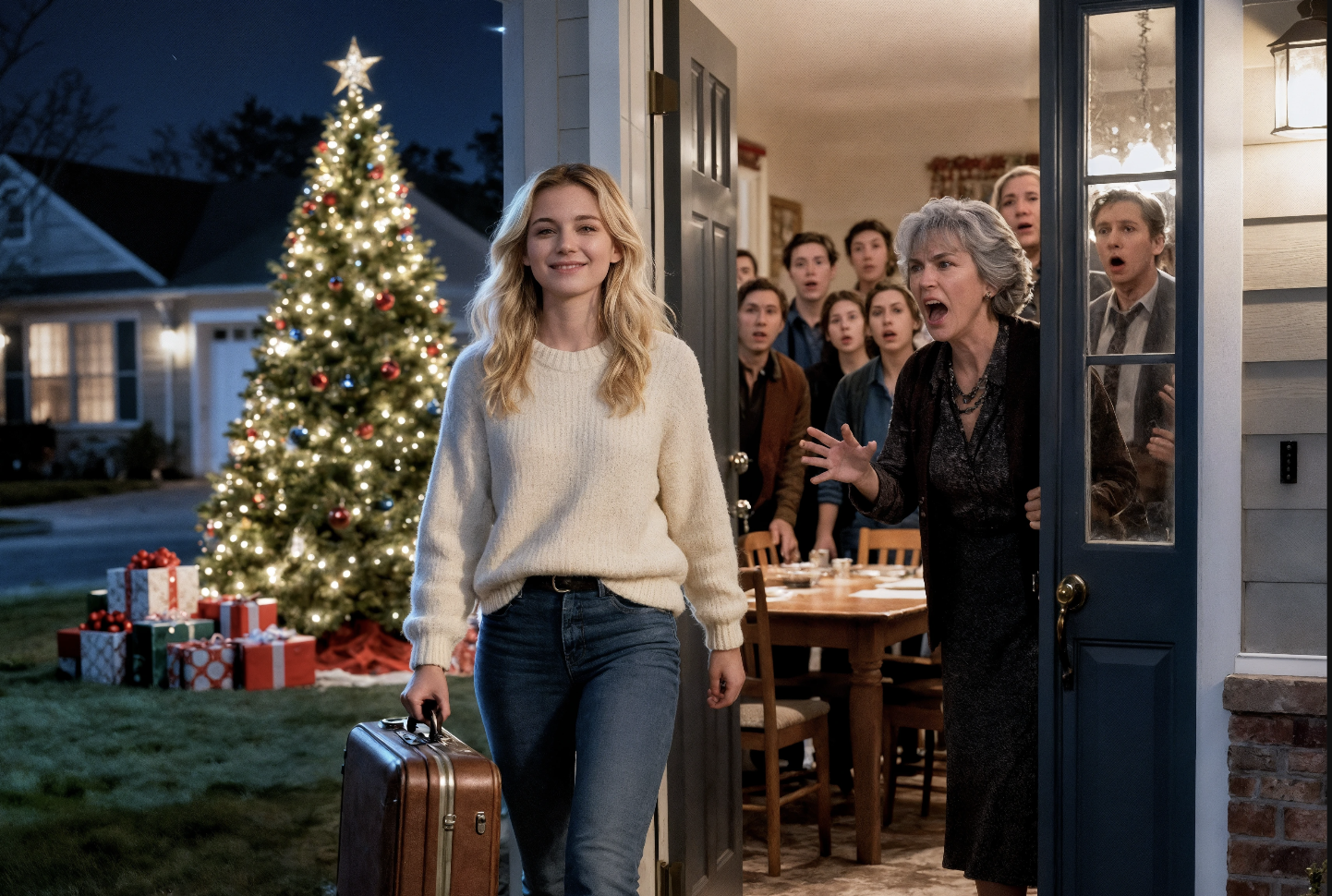My parents saw me as little more than a maid. One day, just before Christmas, my mother smirked and said, “Your sister’s friends are celebrating Christmas here — only twenty-five people.”
She expected me to handle the cooking, cleaning, and serving.
I just smiled.
Later that evening, I booked a flight to Florida for a quiet holiday, leaving the entire party behind.
The familiar scent of pine and cinnamon that once made Christmas magical had, that year, been replaced by the smell of exhaustion. My name is Emily Carter, and at twenty-seven, I realized that in my parents’ home, I wasn’t seen as their daughter — I was their unpaid assistant.
Two weeks before Christmas Eve, my mother stood in the kitchen doorway, arms crossed, her tone sharp as ever.
“Your sister’s friends are celebrating Christmas here — only twenty-five people. You’ll take care of the food, the cleaning, and the decorations. You know how to do that, right?”
I froze, dish towel in hand. My sister Julia scrolled through her phone, not even pretending to listen. It wasn’t the first time. For years, I had been the one setting the table, carrying the groceries, and serving drinks — while Julia was praised as the “perfect hostess.”
But that day, something in me shifted. I smiled — not out of obedience, but out of resolve. “Of course,” I murmured. My mother, satisfied, turned away, already giving orders about the tablecloths and caterer. She didn’t notice my trembling hands, nor the spark of rebellion igniting inside me.
That night, while everyone slept, I booked a direct flight to Florida. I had some savings and unused vacation days. By sunrise, my suitcase was ready. The house was quiet, steeped in the half-finished scent of holiday preparations.
I left a note on the kitchen counter: “Merry Christmas. This year, I’m taking care of myself.”
Then I drove to the airport, feeling lighter with every passing mile.
As the plane took off, I looked out the window and whispered, “Let them handle it this time.”
When I arrived in Miami, the warmth wrapped around me like a long-awaited embrace. For the first time in years, I wasn’t rushing to please anyone. I rented a small beachfront room in Key Largo — white curtains, ocean breeze, and peace.
The next morning, I had breakfast alone on the balcony: pancakes, coffee, and silence. It felt strange not to be interrupted by my mother’s criticism or Julia’s demands. I turned my phone off completely.
In the days that followed, I wandered along the beach, collected shells, and talked to strangers who couldn’t care less about my family drama. One afternoon, I met Liam, a local photographer capturing the sunset. He laughed when I told him I had “run away for Christmas.”
“You did the right thing,” he said with a grin. “Sometimes, family needs to feel your absence to understand your worth.”
His words stayed with me — in a good way.
Meanwhile, back home, I imagined the chaos: no dinner, no cleaning, no “perfect” party. And for the first time, I didn’t feel guilty. I had given so many years — my time, my peace, my holidays — and received nothing but ingratitude in return.
By the fifth day, I had over fifty missed calls. Curiosity won out. I finally listened to a voicemail — my mother’s trembling voice: “Emily, did you leave? The guests arrived and… nothing was ready. We had to cancel. I don’t understand how you could do this.”
I almost felt sorry for her. Almost. Then I remembered all those Christmases spent crying in the kitchen while everyone else laughed in the living room.
For the first time, I felt no shame in choosing myself.
That night, facing the ocean and watching the waves shimmer in the moonlight, I thought: maybe next year, I’ll cook again — but only for people who truly appreciate it.
When I returned after New Year’s, the house was unusually quiet. My mother was torn between anger and embarrassment. My father hid behind his newspaper. Julia avoided my gaze.
“So,” my mother began tensely, “you decided to run away.”
I set my bag down. “No,” I said. “I decided to live.”
The silence that followed was the most powerful sound I’d ever heard. And for once, I didn’t fill it with apologies.
In the weeks that followed, things changed. My mother started cooking for herself. Julia stopped throwing lavish parties. They both seemed… unsettled, maybe even thoughtful. But this time, I wasn’t seeking their approval. I moved into a small apartment across town — cozy, full of sunlight, and filled with plants instead of judgment.
Since then, every Christmas, I travel somewhere new. Sometimes alone, sometimes with friends. My parents still send invitations, but I’ve learned that love doesn’t come with a to-do list.
When I told Liam about that first trip months later, he said, “You didn’t run away, Emily. You reclaimed your peace.”
And he was right.
Now, when I think back, I feel no bitterness — only clarity. Sometimes, packing your bags is the greatest act of self-love there is.
Every December, when the scent of pine fills the air, I smile — not from exhaustion, but from freedom.
Key Insight: If you’ve ever felt crushed beneath others’ expectations, remember this: you have the right to choose peace over their comfort. Would you dare to go find your own happiness?
